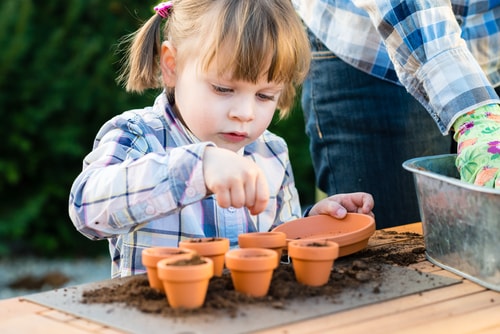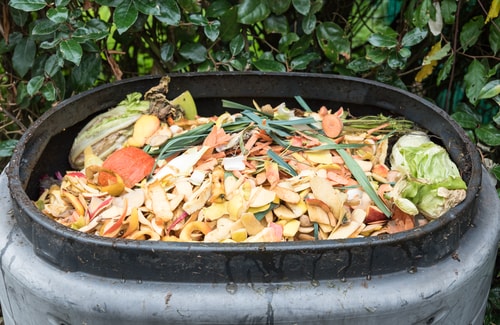For some, gardening can seem quite expensive and risky (what if it dies?!) But there are few easy ways to encourage wildlife in your garden, of all sizes, without having to spend too much money.
Here are some of our best tips for wildlife gardening on a budget, with ideas that are cheap, free or may even make a few pennies!
Facebook marketplace
I use Facebook marketplace quite a lot for cheap garden buys. You can find some excellent bargains. I find plants, seedlings, rocks, planters and containers, wood, soil, composters etc. Often they are cheap or free, or you can haggle a little too. And because it’s local, you’re not paying for postage or loads of fuel. Not only better for cost but for the environment.
Facebook groups
You can also look at your local Facebook community groups. For example, my local group has a day each week to post things for free for people to come and pick up, less reliable but you might come across something useful. There are also local buy and sell groups on Facebook.
Grow from seed
Buying and growing seeds takes more patience and time, but it’s low cost, most packs are between £1 – £3, and you can find most varieties you’re after as seeds.
For example, if you buy a mixed pack of wildflower seeds, that will grow various kinds of plants from just one packet. They will look exciting and beautiful but will also be a real haven for pollinators. Just pick UK native seeds!

When you buy a seed pack of any flowers, you often don’t need them all, so you can also share with friends if you want or save some for next year. They generally keep well if you keep them in a cool dry please, but check the date. You can even grow more seedlings are sell them if it goes well.
With seeds, you can also choose to grow them pesticide free (which is not the case for many garden centre plants) so they will be healthier and better for wildlife from the start.
Likewise if you use peat free compost, then you are not contributing to the damage of ancient peatlands, which hold massive amounts of carbon. Read more about peat free compost here. It is often a little more expensive to buy, but overall, if you’re using it to grow from seed, it’s still cheaper than buying full size plants.
Swap plants
You can also do swaps with friends, with seed packets you’ve bought, or you can even collect seeds from your garden. I collected Lavender (English and French), chives and coral bell from mine this March. We held a seed swap and I got some lovely cosmos. Check your local area if there are any seed swaps coming up in Springtime (usually)
You can also divide up herbaceous perennials for a swap in Spring. They come back year after year and are generally happy to be divided. The RHS have a great thorough guide for dividing plants. Planting perennials will save a fair bit over purchasing annuals which die after the season and need to be replaced.
With your friend’s, neighbours or family’s permission, maybe have a look at their garden to see what can be shared or pinched!
Propagate
Many plants can also be propagated (which means it grows from a cutting into a brand new plant), so you can have more than one if you like it.
There are loads of guides online; if you search along the lines of “(insert plant name) propagation,” You need to pay attention to where you make the cut and whether you propagate in water or soil.
Generally, you need a sterilised tool to make the chop, so you’ll need some high strength cleaning alcohol to make the cut, but you can propagate many larger plants that would otherwise be expensive to buy.
You can plant these up at home or even sell or swap any that reach a good size.
Charity shops
Charity shops don’t usually have a garden section, but larger ones that sell furniture and similar often have quirky containers. Old sinks, bathtubs, wellies, all sorts!
Compost bin
A compost bin will save you money over the year, especially if you garden a lot. It takes a bit of time to set up (a few months to mature), but you’ll save a fair bit of money in the long run as long as you keep it topped up.
You’ll also reduce your food and garden waste; my green and blue bin in Wigan have both been less full.
I paid for my compost bin, but again you’ll often see these for free or very cheap on freecycle or Facebook etc. You can also make one yourself out of wood if you have an old pallet or similar.
We have a blog post about setting up and maintaining your compost bin here!

Water Butt
If you have a drainpipe in your garden, it’s very easy to install a waterbutt and catch rain water for use in the garden. All summer I rely on mine heavily and never /rarely use water from the tap for the garden, saving a lot over the long term.
The bigger the better if you have a good size garden, but even a small one will save you on your water bill.
You can pick them up new, or again they are often very cheap / free on buy / swap sites and facebook marketplace.
If you can, put it in a slightly shaded area so it doesn’t evaporate as quickly.
They are very easy to maintain but it’s good to give it an empty and clean after winter when you’ve not used it as much before you start watering more in Springtime.
If you don’t have space, you can also catch grey water from the shower to water the plants with (you’d be surprised how quickly a bucket fills)
DIY
There are loads of good DIY ideas to try out in the garden. Here are just a few.
Just stacking some dead wood in a corner will provide shelter for beetles, bugs and all sorts of creatures, particularly over the winter. I have found bits at the roadside or hearing of people who are chopping down.
It’s pretty simple to make your own bee hotel with tightly bound canes in a tin can or similar.
I’m trying this at the moment, but you can make a makeshift wildlife pond with old containers. A very cheap way is a washing up bowl, but an old sink or tin tub would also do. Then you need some gravel and a few pond plants. Make sure it’s easy for any creature to get in and out – it wants to have a gentle slope in the pond itself, and to get in (if it’s raised).
If you can get hold of cheap or free wood, you can also make planters. I’ll be honest, ours looks a little wonky, but it holds the soil well and was about £15 to make. You can follow blogs online for instructions or also buy plans for relatively cheap on Etsy.
If you’re handy at woodwork, you can also try making a bird box.
To help birds to nest, you can also bundle old hair (human and animal, just cut a bit if it’s very long ) or organic material like wool and put it on the lawn, and this is free! And the birds will thank you.
Reusing what you own
You can also look to other areas of your house and repurpose what you don’t use. For example, Ali repurposed an old Bicycle by painting it all and putting pots all along the bike. You can make containers out of all sorts. Just make sure you pop a hole in the bottom for drainage.
You can also use cartons cut open or egg boxes to grow seedlings.
FreeCycle
Have a look at your local freecycle. Often people will have too many seeds or seedlings.
B&Q
Our local B&Q has a big bin near the tills full of broken or slightly cut up items that you can take for a charity donation. It’s a bit hit and miss, but sometimes there are pots and wood in them. It’s worth having a look when you’re feeling creative.
Garden centres
Some garden centres have free pots and reduction corners. I love the bargain corner! If you see a perennial, for example, that looks a little sad but cheap, then snap it up because if you plant it, there’s a good chance it’ll come back strong and luscious next year. You can always do a quick google if you’re not sure.
Less maintenance
This one is easy. Do less!
If you stop mowing your lawn, or mow it less often, this will save you electricity (or possible fuel), and it’ll give all sorts of tiny plants an opportunity to grow. Plants like clover are excellent for bees. You’ll be surprised what comes up if you give it a chance. Studies have also shown mowing your lawn less frequently will also make it grow stronger and be more drought resistant. If you’re interested we’ve written more about grass lawns and what you can do with them here
If you stop using chemicals, such as pesticides and herbicides, you will save money! You can still weed manually if you want, or you can spray vinegar, salt and washing up liquid mix on a hot day. Or just leave some be.
Pesticides are not selective and will kill anything that comes into contact, so we’d never recommend them, but if you let your garden grow more naturally, often predators to the pests will start moving in. You can read more about pesticides here.
If slugs are getting you down, you can try a beer trap or copper tape around pots (I bought some cheaply from eBay)
If aphids are bothering you, try growing nasturtiums nearby to the plant you want to save.
Hopefully, you find these tips helpful, and if you have any of your own, we’d love to hear them!

Leave a Reply